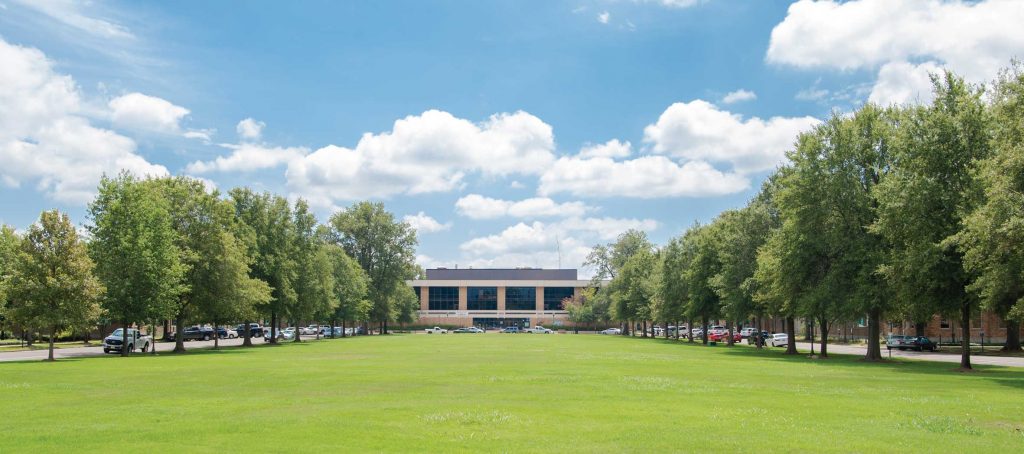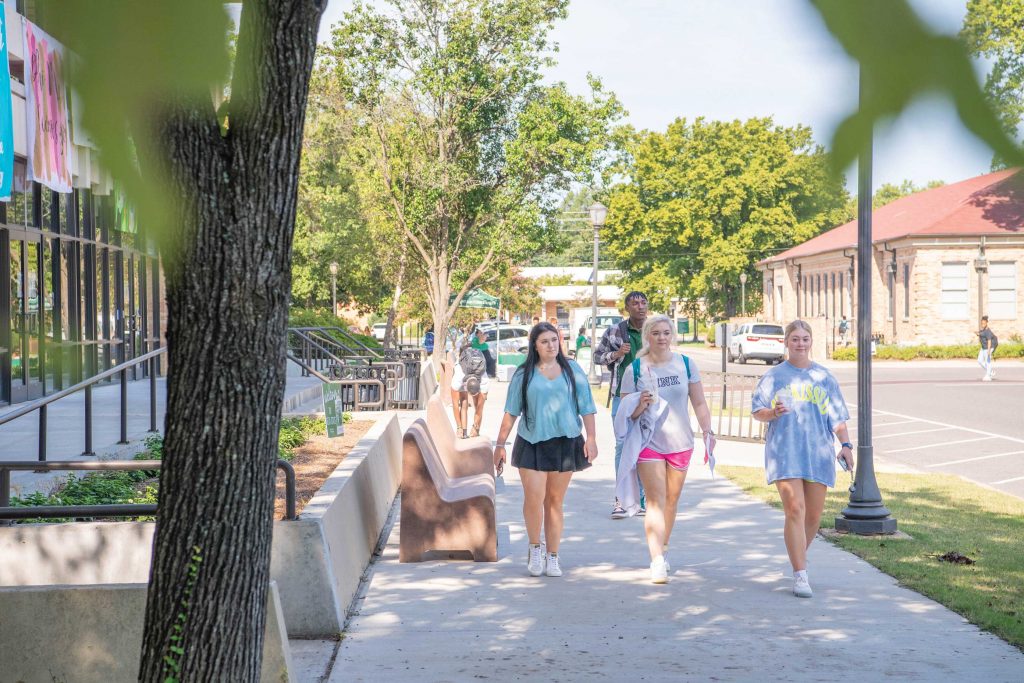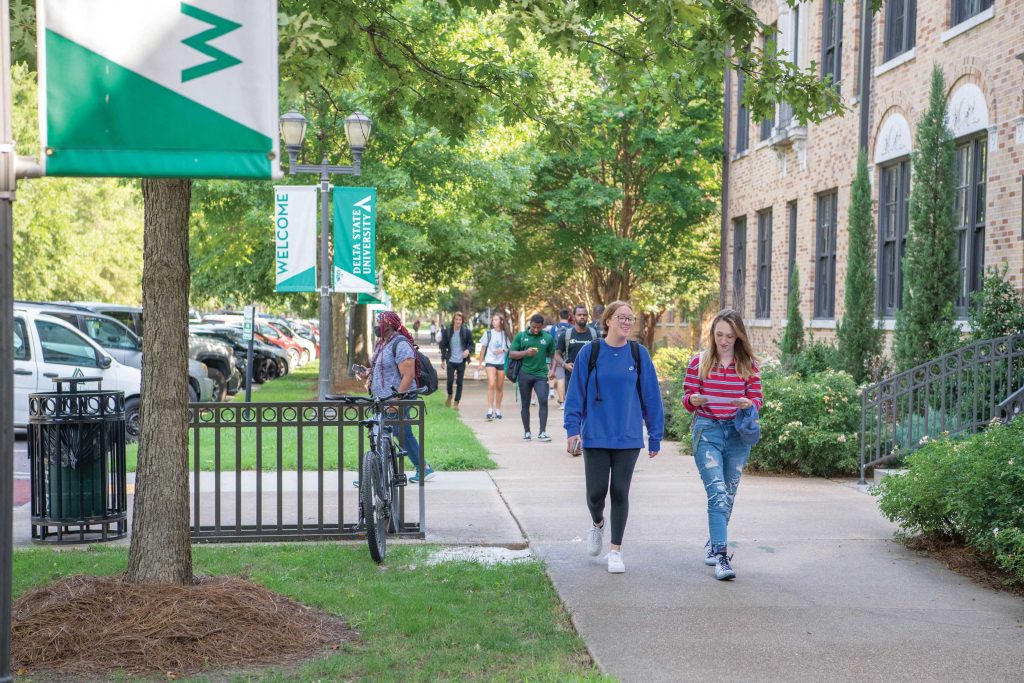If you head west from the intersection of U.S. Highway 61 and MS-8, you’ll discover the hub of educational excellence, athletic pride and cultural enrichments for the Mississippi Delta, Delta State University.
Perhaps best known for its successful alumni like former CEO and chairman of UPS David Abney; record-breaking athletes like Lusia “Lucy” Harris; renowned coaches including Margaret Wade and Boo Ferriss; and of course, its beloved unofficial mascot, The Fighting Okra. Delta State and the Mississippi Delta region have enjoyed a mutually beneficial relationship that has lasted almost 100 years.
On June 7, 1924, Delta State Teachers College opened with a faculty of eleven and an enrollment of 123. In 1955, the name was changed to Delta State College due to the expanding educational programs offered. In 1974, Delta State College became Delta State University.

The University offers several unique educational opportunities, such as the state’s only bachelor’s and master’s degree in Commercial Aviation. Delta State is one of only seven universities nationwide selected for the grants under the new FedEx Purple Runway Aviation Scholarship Program.
The Center for Interdisciplinary Geospatial Information Technologies is an independent unit of the College of Arts and Sciences and has grown considerably over the past several years. Recently, the center became the only North American Regional Support Office for the United Nations Platform for Space-based Disaster Management and Emergency Response.
The Robert E. Smith School of Nursing houses another signature program at Delta State. From the undergraduate and graduate degrees in nursing to the RN-BSN Completion Program, Delta State fills hospitals and medical facilities with quality nursing professionals.

While many students come to DSU from the Delta region, the University never charges out-of-state tuition fees, attracting students from around the country. On the international front, the University is also expanding its footprints with students from forty-two countries currently represented on campus.
With the Mississippi Delta being the birthplace of American music, DSU opened the Delta Music Institute (DMI) Recording Studios in the spring of 2009. DMI is also home to the DMI Mobile Music Lab, a mobile music technology facility serving elementary and high school students in the Mississippi Delta.
Through the Delta Music Institute, an exciting new chapter for the university began in 2016 when the GRAMMY Museum® Mississippi opened its doors on the DSU campus. It was the first sanctioned GRAMMY Museum® outside of Los Angeles.
A new Digital Media Arts program has recently been added at DSU. The facilities feature a state-of-the-art Mac Lab, a green screen area, 2D and 3D animation technology and a voice-over booth. DSU is the only program in the state to offer an Animation concentration.
Delta State is home of the Bologna Performing Arts Center, a multi-disciplinary facility that provides first-class arts and entertainment for DSU and the region. The main performance hall consists of 1,178 seats in the Delta & Pine Land Theater and there are 135 seats in the more intimate Recital Hall. The BPAC has earned recognition as one of the premier venues in Mississippi and the Southeast.
In 2000, The Delta Center for Culture and Learning launched to promote greater understanding of Mississippi Delta culture and history and its significance to the world. The Delta Center serves as the management entity of the Mississippi Delta National Heritage Area and is the home of the International Delta Blues Project and the National Endowment for the Humanities’ “Most Southern Place on Earth” workshops for K-12 educators.
In addition to its educational and cultural influences, Delta State serves as an economic powerhouse in the region and beyond.
Delta State has a $175 million positive impact on the Mississippi Delta, which breaks down as $44 million in direct spending, and $110 million in knowledge impact of $81 million in increased alumni earnings, $27 million in social benefits and $2 million in cultural benefits. DSU supports roughly 550 jobs, including more than 400 full-time employees. Delta State further provides more than 207,000 hours in community development activities such as health, education, and civic outreach.
DSU continues to refine and update programs and renovate buildings, structures, and roadways for a constantly fresh look on campus. In the past year, Delta State has completed several renovation projects designed to enhance the campus and make it more efficient for students, faculty, staff, and the community.




